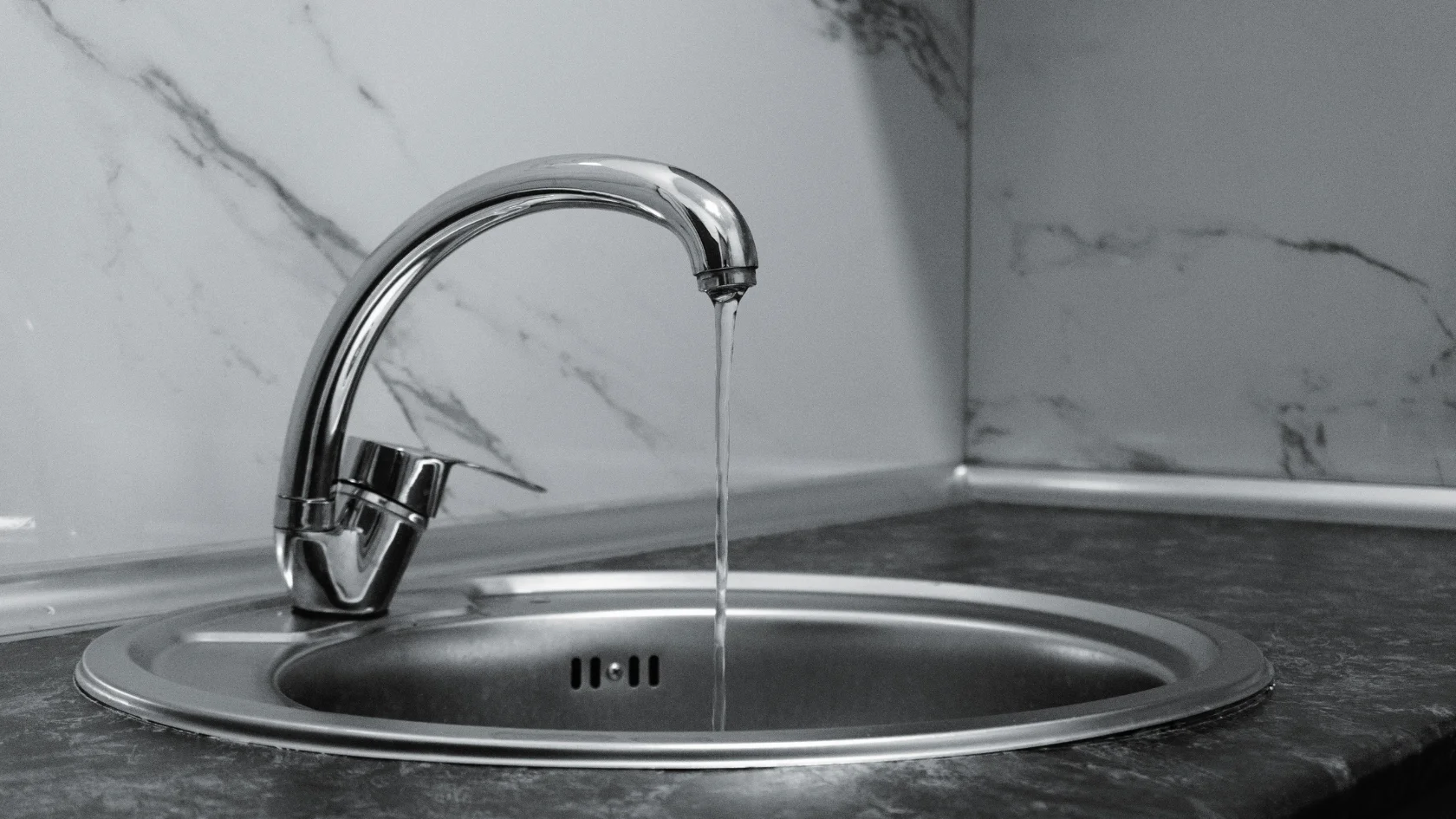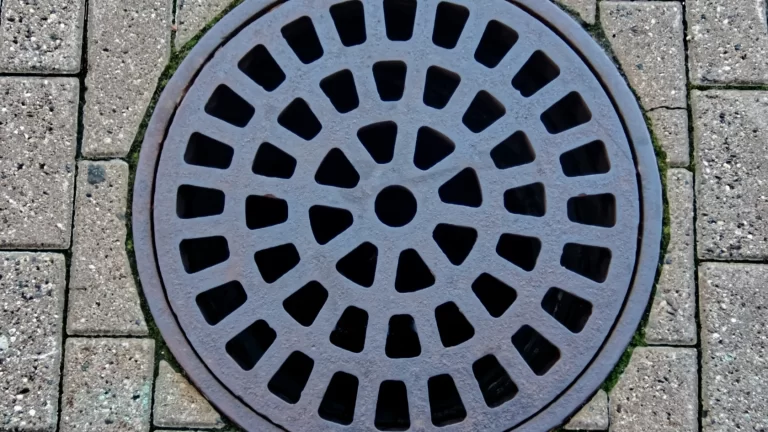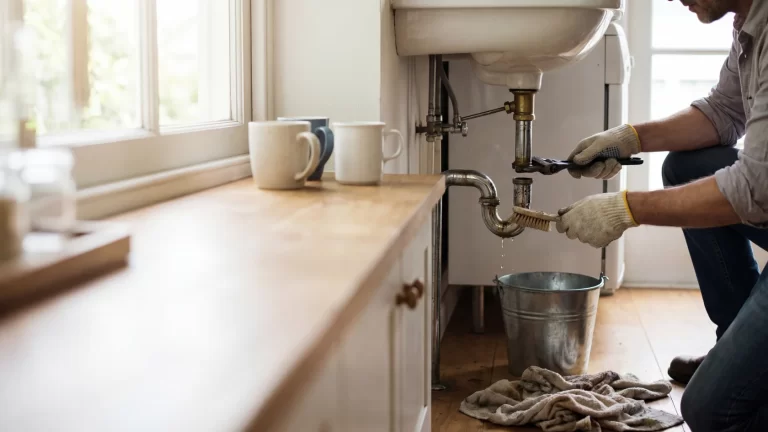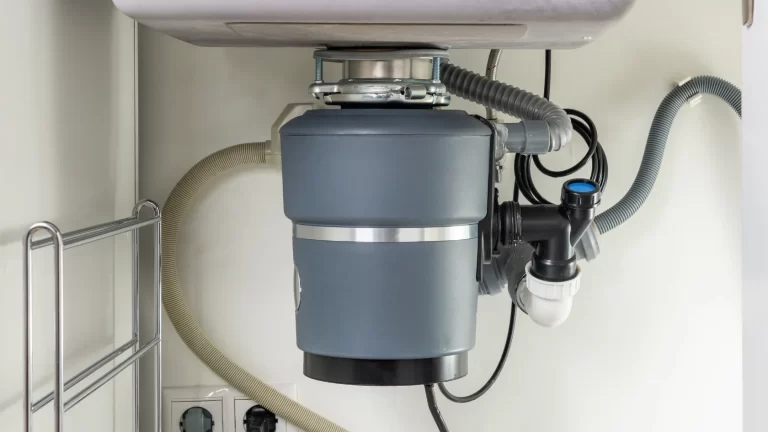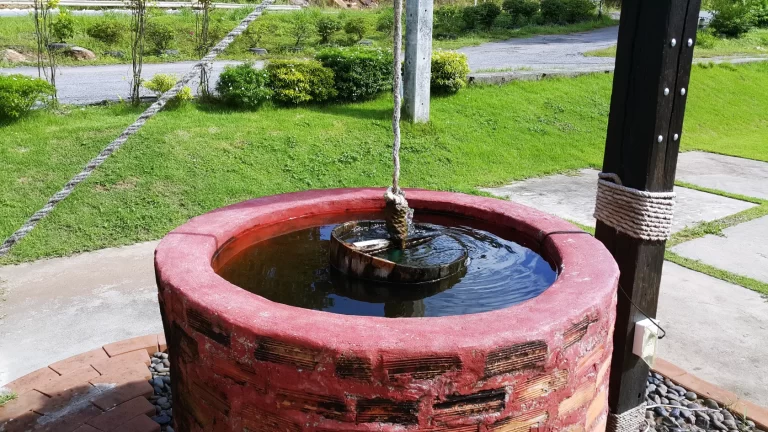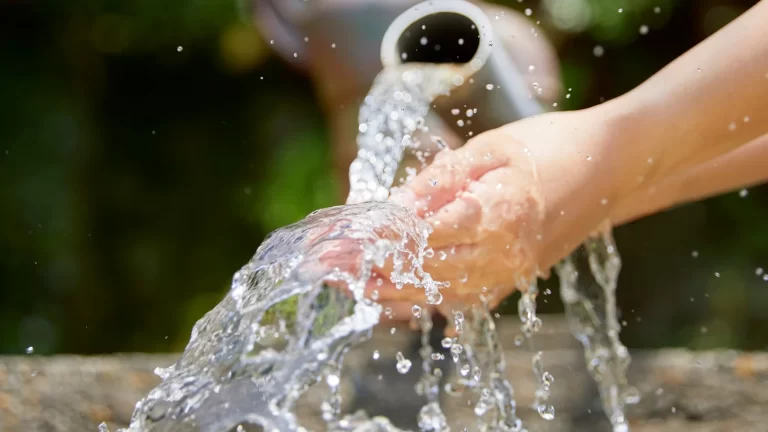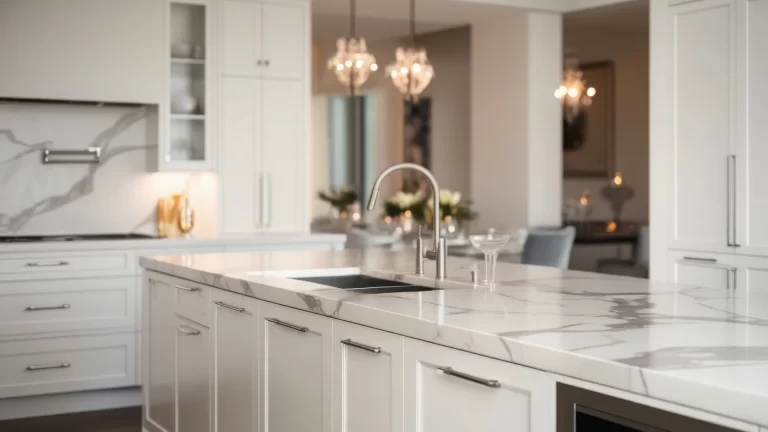You walk into your kitchen or bathroom, and there it is — that unpleasant, mysterious smell you just can’t place. You’ve emptied the trash, wiped the counters, and even lit a candle, but the foul odour lingers. Before you start worrying about mould or pests, there’s a good chance the culprit is right under your nose: a smelly drain.
Drains are designed to carry wastewater and debris away, but when buildup, bacteria, or blockages occur, they can release some truly unpleasant smells. These odours aren’t just annoying — they can also signal that something deeper is wrong in your plumbing system. Fortunately, with the right approach, you can clean a smelly drain safely and prevent the issue from coming back.
In this blog, we’ll walk you through why drains start to smell, how to clean a stinky kitchen or bathroom drain, and when to call a professional plumber for help. We’ll also share some preventive household drain maintenance tips to help keep your home fresh and odour-free all year round.
Contact us today through our form or call +1 (416) 252-5557 for expert plumbing, drain, and related services in Toronto, Etobicoke, Mississauga, and across the GTA.
What Causes a Smelly Drain?

Before learning how to clean a smelly drain, it’s important to understand what causes that bad smell in the first place. A foul odour from your kitchen or bathroom sink drain can have several sources — some minor and easy to fix, and others more serious that require a plumber’s expertise.
1. Buildup of Organic Matter
One of the most common causes of a smelly drain is the buildup of food particles, grease, soap scum, and hair. Over time, this debris can stick to the sides of your drain pipe, decompose, and create a breeding ground for bacteria. As the bacteria multiply, they release unpleasant gases — the “rotten” smell you notice around your sink or shower drain.
Due to the continuous flow of food particles and oil down the drain, this is particularly prevalent in kitchen sink drains. In the bathroom, hair and soap residue are the usual suspects.
2. Dry or Empty P-Trap
Your drain’s P-trap — the curved pipe under your sink — is designed to hold a small amount of water at all times. That water acts as a barrier to keep sewer gases from coming up through the drain. The water in the P-trap in a sink that hasn’t been used in a long time may evaporate, letting gases leak into your house.
You might notice this issue in basement drains, guest bathrooms, or rarely used laundry sinks.
3. Clogged Vent Pipes
Every plumbing system has vent pipes that help air flow and balance pressure when water drains. These vents can obstruct the airflow and cause slow drains, gurgling noises, and unpleasant odours if they are blocked with leaves, debris, or even a bird’s nest.
4. Standing Water Causes Partial Clogs
Standing water can be trapped in a slow or partially clogged drain, which provides the ideal conditions for germs to grow. If your drain smells bad and drains slowly, that’s a sign that gunk buildup inside the pipe is likely the cause.
5. Sewer Line Problems
A lingering unpleasant odour may occasionally be a sign of a more serious problem, such as a blockage or leak in the sewer line. If the odour smells like rotten eggs or sulfur and comes from multiple drains, it’s time to call a professional. Absolute Draining & Plumbing has the tools and expertise to inspect your drainage system and locate sewer gas leaks before they cause health hazards or water damage.
How to Clean a Smelly Drain: Step-by-Step Guide

A smelly drain doesn’t always require expensive cleaners or major plumbing work. In most cases, a few household ingredients and a bit of maintenance can clear up the odour quickly. Here’s how to clean your smelly kitchen drain or bathroom drain safely and effectively.
Step 1: Flush the Drain with Boiling Water
The simplest first step is to pour boiling water down the drain. Boiling water helps dissolve light grease and wash away small debris clinging to the inside of the pipe.
How to do it:
- Boil a full kettle or large pot of water.
- Gradually pour half of it down the drain.
- Wait about one minute.
- Pour the remaining water to fully rinse the pipe.
This quick flush can often eliminate minor smells and loosen up buildup before you move on to deeper cleaning.
Step 2: Use Baking Soda and Vinegar
One of the best and most natural ways to clear a smelly sink drain is to use vinegar and baking soda. The fizzing reaction helps break down grime, remove odours, and dislodge minor clogs.
Here’s how:
- Directly pour one cup of baking soda down the drain.
- Follow it with two cups of hot white vinegar.
- Let the mixture fizz for about 10–15 minutes.
- After it settles, flush the drain with hot water.
For stronger odours, you can repeat this process once a week to keep the drain smelling fresh. Always remember, avoid using harsh chemical drain cleaners. They might seem convenient, but over time, they can corrode your pipes and harm the environment. For the majority of stinky drain problems, vinegar and baking soda are equally safe and efficient.
Step 3: Clean the Drain Stopper and Strainer
Many homeowners forget that the smell might not be coming from inside the pipe, but from gunk collected around the drain cover or stopper. Hair, soap, and debris often stick there and start to rot.
To clean it:
- Remove the drain stopper or strainer.
- Scrub it thoroughly with a small brush or an old toothbrush using dish soap.
- Rinse it with hot water before placing it back.
Doing this regularly keeps bacteria from growing right at the drain opening.
Step 4: Check and Clean the P-Trap
If the smell persists after cleaning the top of the drain, it might be coming from the P-trap itself. This curved section of pipe under your sink can collect gunk or even small objects that block water flow.
Here’s how to clean it safely:
- Place a bucket under the P-trap to catch water.
- Use a wrench to loosen the slip nuts on both ends.
- Remove the trap and dump out any debris or standing water.
- Rinse the pipe outside with a garden hose or boiling water.
- Reassemble and check for leaks.
If you’re not comfortable doing this yourself, call a licensed plumber. Absolute Draining & Plumbing can clean or replace a P-trap without making a mess or damaging your plumbing system.
Step 5: Clean the Drain Vent
When odours don’t go away despite a clean drain, the issue could be higher up in your drain vent. These vents usually exit through your roof and can get blocked by leaves, dirt, or even animal nests.
If you suspect a vent blockage, it’s best to contact a professional plumber — accessing and cleaning roof vents can be dangerous without proper tools and safety gear.
Contact us today through our form or call +1 (416) 252-5557 for expert plumbing, drain, and related services in Toronto, Etobicoke, Mississauga, and across the GTA.
Alternative Home Remedies for Stinky Drains

If the baking soda and vinegar method isn’t enough, here are a few other gentle, plumber-approved ways to get rid of drain odours.
Enzyme-Based Drain Cleaners
Enzyme-based or bio drain cleaners use natural bacteria to eat away at organic matter in your pipes. They’re safe for your plumbing system and work well for persistent drain odours. These cleaners can also help maintain clear, odour-free drains over time.
Lemon and Salt
For a smelly kitchen sink, especially one with a garbage disposal, cut a lemon into chunks and drop it into the drain along with a handful of salt. Turn on the disposal and run cold water for 20 seconds. The lemon acts as a natural deodorizer, while the salt scrubs residue off the blades.
Baking Soda and Boiling Water Routine
Pour a cup of baking soda and hot water down the drain once a week. This easy procedure keeps drains clean and stops unpleasant odours from coming back.
Preventing Drain Odours Before They Start

Maintaining clean drains doesn’t have to be difficult. A few minor routines can have a significant impact on avoiding odours and clogged drains.
- Use Drain Strainers. Install a drain screen or strainer to catch food scraps, hair, and debris before they go down the drain. Empty and rinse it daily.
- Avoid Pouring Grease Down the Drain. Grease may go down as a liquid but hardens as it cools, coating your pipes and trapping debris. Instead, collect used cooking oil in a container and throw it in the trash once solidified.
- Run Hot Water After Each Use. After washing dishes or brushing your teeth, run hot water for a few seconds to help flush any remaining residue down the pipe.
- Maintain Infrequently Used Drains. For sinks or showers that aren’t used often, pour a cup of water (or mineral oil) into the drain every few weeks to keep the P-trap from drying out.
- Schedule Professional Drain Cleaning. Over time, accumulation inside pipes might still happen even with routine maintenance. By hiring a professional drain cleaning service once a year, you may lower your chance of odours, obstructions, and expensive plumbing problems by keeping your drain system free.
Absolute Draining & Plumbing offers comprehensive drain cleaning across Toronto and the GTA, using safe, effective methods that protect your plumbing and keep your home fresh.
When to Call a Professional Plumber

A smelly drain may indicate a more serious issue that should only be handled by a professional, but in most cases, do-it-yourself cleaning is effective. If you encounter any of the following, get in touch with a qualified plumber.
- The odour returns quickly after cleaning.
- Multiple drains in your home smell bad.
- You notice gurgling sounds, slow drainage, or standing water.
- You suspect a sewer gas or sewer line issue.
Professional plumbers, like the team at Absolute Draining & Plumbing, use specialized tools like drain cameras, snakes, and hydro jetting systems to find and eliminate deep blockages and remove bacteria buildup that causes foul odours.
Plus, they can inspect for plumbing errors, leaks, or vent blockages that DIY cleaning can’t fix — ensuring your entire system is healthy and functioning properly.
Stop Slow Drains and Bad Smells for Good – Call a Professional
A foul-smelling drain may seem like a little annoyance, but if you ignore it, it may be an indication of more serious plumbing problems. To prevent odours, it’s important to regularly clean and maintain your drains using baking soda, vinegar, and hot water. However, if the bad smells persist, it’s advisable to seek help from a professional plumber.
At Absolute Draining & Plumbing, we’ve been helping Toronto homeowners solve drain and plumbing problems for over 20 years. Our licensed plumbers use modern tools and proven techniques to clean, repair, and maintain your kitchen and bathroom drains — keeping your home fresh and safe.
Whether it’s a stinky kitchen sink, a smelly shower drain, or a blocked drainage system, our experts are ready to help. Get your plumbing system operating and smelling like new again by getting in touch with us right now for expert drain cleaning.
Contact us today through our form or call +1 (416) 252-5557 for expert plumbing, drain, and related services in Toronto, Etobicoke, Mississauga, and across the GTA.

